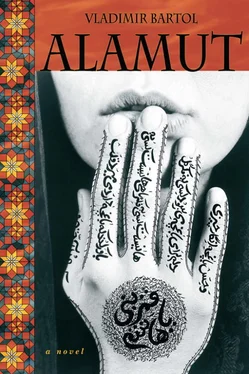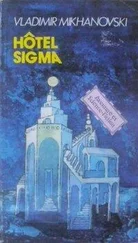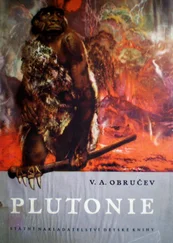Vladimir Bartol - Alamut
Здесь есть возможность читать онлайн «Vladimir Bartol - Alamut» весь текст электронной книги совершенно бесплатно (целиком полную версию без сокращений). В некоторых случаях можно слушать аудио, скачать через торрент в формате fb2 и присутствует краткое содержание. Город: Berkeley, Год выпуска: 2012, ISBN: 2012, Издательство: North Atlantic Books, Жанр: Историческая проза, на английском языке. Описание произведения, (предисловие) а так же отзывы посетителей доступны на портале библиотеки ЛибКат.
- Название:Alamut
- Автор:
- Издательство:North Atlantic Books
- Жанр:
- Год:2012
- Город:Berkeley
- ISBN:9781583946954
- Рейтинг книги:2.8 / 5. Голосов: 5
-
Избранное:Добавить в избранное
- Отзывы:
-
Ваша оценка:
- 60
- 1
- 2
- 3
- 4
- 5
Alamut: краткое содержание, описание и аннотация
Предлагаем к чтению аннотацию, описание, краткое содержание или предисловие (зависит от того, что написал сам автор книги «Alamut»). Если вы не нашли необходимую информацию о книге — напишите в комментариях, мы постараемся отыскать её.
Alamut — читать онлайн бесплатно полную книгу (весь текст) целиком
Ниже представлен текст книги, разбитый по страницам. Система сохранения места последней прочитанной страницы, позволяет с удобством читать онлайн бесплатно книгу «Alamut», без необходимости каждый раз заново искать на чём Вы остановились. Поставьте закладку, и сможете в любой момент перейти на страницу, на которой закончили чтение.
Интервал:
Закладка:
Hasan had to smile as he set his seal on the letter. He sensed full well that his demands were no small provocation. He wondered how the sultan would take them. After all, he was demanding nothing less than that the all-powerful emperor of Iran pay him an annual tax!
Even though Halfa was an authorized messenger, the sultan’s henchmen seized him as early as Hamadan and sent him to Baghdad in chains. At the height of the festivities, the commander of the sultan’s bodyguard delivered Hasan’s letter to his master. The sovereign ripped the seal off of it and read it eagerly. He grew pale. His lips trembled with rage.
“How dare you bring me a vile thing like this in the middle these celebrations?!” he roared at the commander.
The commander of the bodyguard fell prostrate. He begged for mercy.
“Here, read it!” the sultan shouted.
He dismissed the entire court. Now he was free to give vent to his full rage. He tore the curtains and carpets off the doorways and windows, broke everything that was breakable, then collapsed, breathless and gasping, onto some pillows.
“Bring me the villain!” he ordered in a hoarse voice.
They led Halfa in, bound and terrified.
“Who are you?!”
Halfa answered in a stammer.
“A feday?! So you’re a professional murderer!” the sultan wailed.
He leaped to his feet, shoved Halfa to the ground, jumped on him, and worked himself into a fury. At last he drew his saber and used it to hack the poor messenger to death.
His outburst ended just as suddenly as it had come. He grew sober at the sight of the dead body before him. He asked his personal scribe and the commander of his bodyguard for their advice on how to respond to Hasan’s shameless provocation.
“Your Majesty should hasten all military campaigns against the Ismailis,” the commander of the bodyguard advised.
“But the insult itself must also be returned,” his secretary said. “Permit me to compose a response in Your Majesty’s name.”
They decided to send a messenger to Alamut. In his letter the secretary called Hasan a murderer, a traitor and a mercenary of the caliph of Cairo. He ordered him to vacate immediately all of the castles he had seized unlawfully. Otherwise not one stone would be left atop another, and the Ismailis would be wiped out together with their wives and children. He himself would meet with the ultimate punishment. This was how His Majesty ought to reply to him.
A young officer, a certain Halef of Ghazna, was chosen to be the messenger. He mounted his horse and changed it at every station along the way, and in this way he reached Alamut within six days.
Manuchehr had him detained in his tower while he carried the letter to Abu Ali, who in turn delivered it to Hasan.
Hasan read it and then showed it coolly to Abu Ali. He also called for Buzurg Ummid. He told them, “The sultan is blinded by his own greatness and is turning his back on the danger that threatens him. He refuses to recognize us. Too bad for him.”
He ordered the messenger put in chains and brought before him.
Halef resisted being bound.
“This is a crime!” he shouted. “I’m a messenger from His Highness, the sultan and shah of Iran. If you put me in chains, you insult him.”
This was to no avail. He had to appear before the supreme commander in shackles.
“I strongly protest this treatment,” he said indignantly when he came into the antechamber where the commanders were waiting for him.
“Where is my messenger?” Hasan asked him coolly.
“First…,” Halef said, trying to resume his indignant protest.
“Where is my messenger?!”
Hasan’s eyes bore into the officer. His voice was hard and commanding.
Halef stubbornly lowered his eyes. He was silent.
“Have you been struck dumb? Wait! I’ll show you a way to loosen your tongue.”
He ordered a eunuch to show in the executioner with his assistants and their equipment. Then he turned toward the grand dais and began to chat with them casually.
Halef suddenly spoke up.
“I come in the name of His Majesty. I’m only carrying out his orders.”
Hasan ignored his words. He didn’t even look at him.
The executioner and his two assistants arrived. The three of them were real giants. They immediately began to set up a rack. They set a stone urn down on the floor and used a bellows to fan the embers in it. In a separate box there were various implements of torture which rattled unpleasantly when they were set in the corner.
Sweat beaded on Halef’s forehead. He began swallowing so much that his mouth was soon dry.
“How should I know what’s come of your messenger?” he said, his voice trembling. “I was just given an order and I’ve carried it out.”
Hasan acted as though he were deaf.
When the preparations for torture were complete, the executioner spoke.
“Everything is ready, Sayyiduna.”
“Start with burning.”
The executioner took a sharpened iron poker out of the box and began heating it in the fire.
Halef shouted, “I’ll tell you everything I know.”
Hasan still didn’t move.
The poker had become white-hot. The executioner drew it out of the fire and approached the prisoner, who howled when he saw what was coming.
“Sir! Spare me! The sultan cut down your messenger with his saber.”
Only now did Hasan turn to face Halef. He gave the executioner a sign to withdraw.
“So, you’ve regained the gift of speech after all? And the sultan butchered my emissary with his own hands, you say? Bad, very bad.”
This whole time he was thinking how he might outwit the sultan. Now, as he looked at his messenger, a plan suddenly came into focus in his mind.
“Summon the doctor!” he told a eunuch.
Halef was shaking. He could tell that this new command couldn’t be good news for him.
Hasan signaled to the grand dais to follow him into his room.
“We mustn’t be content with half-measures,” he told them. “We have to wound the enemy to the quick if we want to keep him from outpacing us. Let’s have no illusions. From now on the sultan will commit all of his forces to destroying us.”
But what exactly he was planning, he didn’t tell them.
A eunuch announced the arrival of Hakim.
“Have him come in,” Hasan said.
The Greek walked into the room, bowing deeply.
“Did you get a look at the prisoner?” Hasan asked him.
“Yes, he was waiting outside.”
“Go and take another close look at him.”
The Greek obeyed. He came back in a short while.
“Do you know any of the fedayeen who look like him?”
The doctor looked at him, uncomprehending.
“I don’t know what you mean by that, Sayyiduna,” he said. “His face is a little reminiscent of Obeida, peace be upon him.”
Hasan’s eyes flashed impatiently.
“Or maybe… his posture is a little bit like Halfa’s, the one you sent somewhere two weeks ago… Is that wrong too? Or he might resemble Afan? Then I give up… His legs are bowed like Jafar’s… Is that what you were thinking?”
The Greek was covered in sweat.
Hasan laughed.
“You’re a doctor and a skillful barber. How would you feel about, let’s say, turning Jafar into that man?”
Hakim’s face brightened.
“That’s an art I know something about. It’s practiced widely where I come from.”
“There you go, now we’re getting somewhere.”
“Ah, you deign to joke, Sayyiduna. The man waiting outside has a short, curly beard, a slightly broken nose and a large scar on his cheek. It’s a face that was made to be transferred to another. But you must allow me to have the model constantly in front of me when I set to work.”
“Fine. But can you assure me that the similarity will be great enough?”
Читать дальшеИнтервал:
Закладка:
Похожие книги на «Alamut»
Представляем Вашему вниманию похожие книги на «Alamut» списком для выбора. Мы отобрали схожую по названию и смыслу литературу в надежде предоставить читателям больше вариантов отыскать новые, интересные, ещё непрочитанные произведения.
Обсуждение, отзывы о книге «Alamut» и просто собственные мнения читателей. Оставьте ваши комментарии, напишите, что Вы думаете о произведении, его смысле или главных героях. Укажите что конкретно понравилось, а что нет, и почему Вы так считаете.












